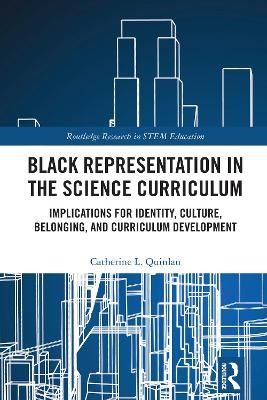
Black Representation in the Science Curriculum
Routledge (Verlag)
978-1-032-75719-3 (ISBN)
Weaving together content, new methodologies, and science education pedagogies, it opens up new space for the meaningful inclusion of the science capital and cultural capital of Black people in the US science curricula. Drawing on ethnographic interviews with African American Gullah-Geechee and research outcomes from qualitative and quantitative research and curriculum development, it brings home the importance of attending to a sense of belonging in the K-12 science curricula toward lasting equity and inclusion. The author uses applied cognitive psychology theories as frameworks to show how perceptions about the perceived value of Black representation as a way of knowing is influenced by identity, culture, and social schemas.
Incorporating new methodologies and approaches focused on inclusion and belonging, it will appeal to scholars, researchers, upper-level and post-graduate students with interest in STEM education, race and ethnicity in education, equity, and research methods in education.
Catherine L. Quinlan received her training in science education at Teachers College, Columbia University and her first academic appointment at Howard University. She is currently Associate Professor of Science Education at Howard University.
Part 1: The Influence of Social Schemas on Belonging, Identity, and Meaningful Inclusion 1. Social Schemas, Identity, and Belonging 2. The Influence of Social Schemas on Identity and Belonging in Science 3. High School Biology Students’ Schema Progression Using an STS Context 4. Why Science Pedagogy and Black Representation Matters? Part 2: Including the Lived experiences and Narratives of Black heritage in Science as a Way of Knowing. 5. Including the Lived Experiences and Narratives of Black heritage: Multifaceted Methods, Ideas, and Considerations 6. Food Pathways of the African Diaspora: Science Standards and Science Content 7. Preservice Teachers’ Views of the Nature of Science and Lesson Implementations: Implications for the Sociocultural Embeddedness of Science 8. Topics for Inclusion of Black Narratives into Science Concepts Part 3: Science Pedagogies and Considerations for Other Ways of Knowing in Science 9. Argumentation as a Schema-Based Science Pedagogy for Inclusive Content 10. Connecting Learning With The Material World Through Object, Place, and Play 11. African Rock Art Image Analysis 12. Representation and The Economic Pipeline
| Erscheinungsdatum | 10.07.2024 |
|---|---|
| Reihe/Serie | Routledge Research in STEM Education |
| Zusatzinfo | 4 Tables, black and white; 2 Line drawings, black and white; 1 Halftones, black and white; 3 Illustrations, black and white |
| Verlagsort | London |
| Sprache | englisch |
| Maße | 152 x 229 mm |
| Gewicht | 576 g |
| Themenwelt | Geisteswissenschaften ► Psychologie ► Allgemeine Psychologie |
| Geisteswissenschaften ► Psychologie ► Verhaltenstherapie | |
| Sozialwissenschaften ► Pädagogik ► Bildungstheorie | |
| Sozialwissenschaften ► Pädagogik ► Erwachsenenbildung | |
| ISBN-10 | 1-032-75719-1 / 1032757191 |
| ISBN-13 | 978-1-032-75719-3 / 9781032757193 |
| Zustand | Neuware |
| Informationen gemäß Produktsicherheitsverordnung (GPSR) | |
| Haben Sie eine Frage zum Produkt? |
aus dem Bereich


